As Apostolic Exhortations go, Amoris Laetitia has been one of the most widely read – and furiously commented upon – in recent memory.
Issued following the October 2014 Extraordinary and October 2015 Ordinary Synods on the Family, the document given to the world by Pope Francis is an eloquent meditation on love, marriage and family life.
It is also a practical, pastoral document aimed at helping the many people — singles, couples, children — who find themselves in some way adrift in the sea of broken marriages, alone or in re-formed second families, alienated in greater or lesser degrees from the Church and from the fullness of Christian life that she proposes. Francis sees these people with compassion and extends a hand from the Barque of Peter to help pull them up.
As Cardinal Gerhard Müller, Prefect for the Doctrine of the Faith, says, “Francis, sensitive to the flood situation of the contemporary world, has opened all possible windows of the boat and has invited all of us to throw ropes from the windows in order to pull the castaway onto the barque.”
But some worry that in doing this, proposing approaches and solutions that could be called innovative, the Pope has unwittingly “created chaos with the stroke of a pen,” as Catholic Philosopher Robert Spaemann has said.
We continue here our survey, begun in our last issue, of some of the thoughtful commentary that Amoris Laetitia has spawned, with pieces by noted theologians, canon lawyers and clergymen.
Of course, we also invite you to read the document yourself, available online in English at the Vatican’s website, to better understand, and perhaps contribute to, the debate. —The Editor
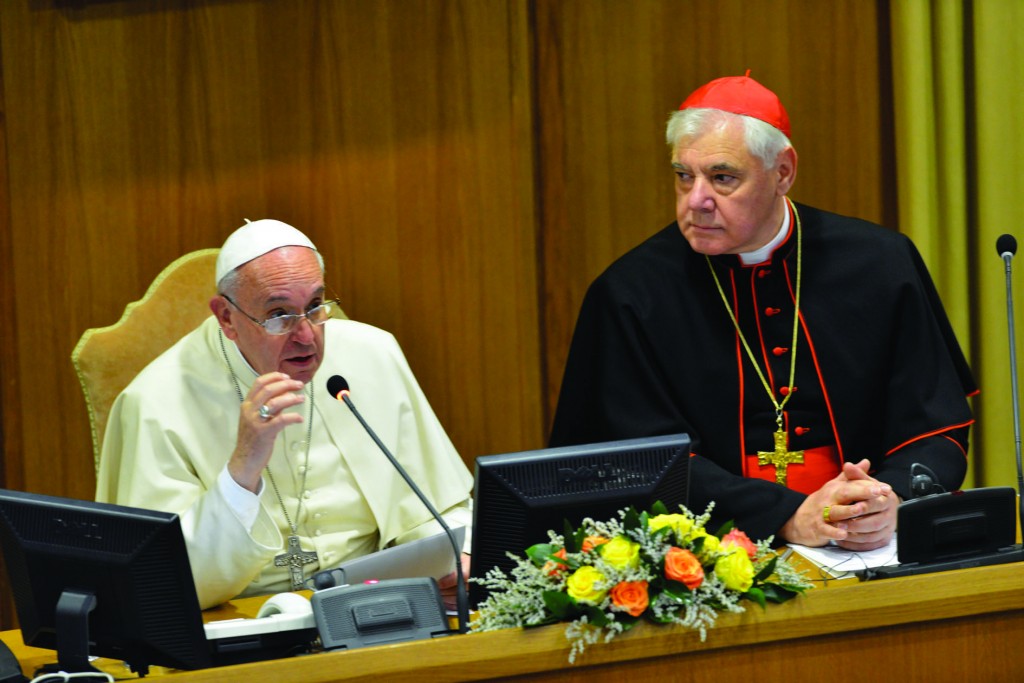
Pope Francis, seated next to Cardinal Gerhard Muller, prefect of the Vatican Congregation for the Doctrine of the Faith, discusses preservation of the family in Synod Hall at the Vatican (CNS photo/Chris Warde-Jones, courtesy Humanum.it)
“The marriage bond is the keystone”
Cardinal Gerhard Müller, Prefect for the Congregation for the Doctrine of the Faith, gave a May 4 speech to seminarians in Oviedo, Spain, in which he asked, “Can the family hope in the Church? And what can the Church expect from her?”
The cardinal used the analogy of Noah’s Ark in his discussion of the family, calling it a type of the Church, “the shelter for all who have been rescued from the deluge,” and the Sacraments, “the architecture of the ship that gets us safely to the secure haven.”
Following are some excerpts from Cardinal Müller’s talk:
A first lesson of this account is that rediscovering God’s original plan for the family entails the rediscovery of hope. In it, God offers a foundation for the desire for fullness that men experience: God builds a dwelling for desire, an ark where every person may recognize his origin and destiny…
The waters of the flood, for their part, speak to us of the fluid relationships of postmodernity, devoid of form and always unstable, that start over time after time in multiple disconnected unions.
The desire for family of man today, if it does not find any other reference, ends up closed off in itself and is incapable of growing toward the promised goal…
In this ideological flood, the family dwelling, Noah’s ark, appears as the setting where desire is sustained, welcomed, healed, and strengthened toward its goal[…]
***
Amoris Laetitia, in its fourth chapter, has summarized the hope of the family through the exegesis of the first letter to the Corinthians, chapter 13, and this intuition, in my judgment, is the key to interpreting the document. According to it, only in the light of true and genuine love (AL 67) is it possible “to learn to love” (AL 208) and build a dwelling for desire.
***
St. Augustine saw in the sacramental economy of the Church the fundamental architecture of Noah’s ark, which is the body of Christ, with baptism as the great door. The Church can navigate because her hull and masts have the form of this love of Jesus, communicated in the sacraments. In this way she is able to create in the world a new environment, a new culture, new practices for accompanying families. We can discover here the great hope of the family: this hope consists in the great gift that every family has received in the sacrament of marriage, thanks to which the spouses become an efficacious sign of the love of Jesus and of his Church. If the family has hope, it is because of this gift received from God, which in its turn generates multiple relationships […]
***
In this light the Pope insists that pastoral care for marriage must be “centered on the marriage bond” (AL 211). In comparison with an emotive pastoral approach, which seeks only to stir up sentiments or contents itself with providing personal experiences of the encounter with God, a pastoral emphasis on the bond is a pastoral approach that prepares one for the “yes forever.” …In cultivating the bond, love reaches out from itself, overcomes the fluctuation of sentiment, becomes strong in order to support society and welcome children. This is once again a matter, as we see, of providing a dwelling place for the family, in which the marriage bond is the keystone…
It is on this basis that the insistence of Pope Francis on what he calls the “Christian ideal” must be understood. Some have interpreted this as if it were a distant goal, abstract, only for a few. But this is not the thought of Francis. The Pope is not a Platonist! Entirely to the contrary, for him Christianity touches the flesh of man (cf. Evangelii Gaudium 88, 233). This can be seen very clearly when Francis cautions us against setting up “a far too abstract and almost artificial theological ideal of marriage, far removed from the concrete situations and practical possibilities of real families” (AL 36). Here the Pope himself rejects the notion that the ideal is something abstract and artificial[….]
***
What the Church can never lose is the architecture of the sacraments, or she would lose the original gift that supports her and suffer the darkening of the love of Jesus and of the way in which this love transforms Christian life. It is precisely in assimilating the sacramental structure that the Church avoids the two possible ways of becoming a “Church of the pure,” the exclusion of sinners and the exclusion of sin.
So the first key element for this journey of accompaniment is the harmony between the sacramental celebration and Christian life. This is the reason for the Eucharistic discipline that the Church has maintained from the beginning. Thanks to this, the church can be a community that accompanies, welcomes the sinner without thereby blessing the sin, and thus offers the foundation so that a path of discernment and integration may be possible[…]
***
Some have affirmed that Amoris Laetitia has eliminated this discipline and has permitted, at least in some cases, the divorced and remarried to receive the Eucharist without the need to change their way of life according to what is indicated in Familiaris Consortio 84, which means abandoning the new union or living in it as brother and sister.
To this it must be replied that if Amoris Laetitia had wanted to eliminate such a deeply-rooted and significant discipline, it would have said so clearly and presented supporting reasons….
But isn’t this change of course found — some object — in a footnote that says that in some cases the Church could offer the help of the sacraments to those who are living in an objective situation of sin (no. 351)?
Without entering into a detailed analysis, suffice it to say that this footnote refers to objective situations of sin in general, without citing the specific case of the divorced in new civil unions. The situation of these latter, effectively, has particular characteristics that distinguish it from other situations. These divorced persons are living in contrast with the sacrament of marriage, and therefore with the economy of the sacraments, the center of which is the Eucharist… The basic principle is that no one can truly desire a sacrament, that of the Eucharist, without also desiring to live in accord with the other sacraments, including that of marriage[…]
***
Someone might insist:…Isn’t it too much to ask these persons to move toward a life in keeping with the word of Jesus? What happens is instead the contrary. We would say, using the image of the ark, that Francis, sensitive to the flood situation of the contemporary world, has opened all possible windows of the boat and has invited all of us to throw ropes from the windows in order to pull the castaway onto the barque. But to permit, albeit in only some cases, that Communion be given to those who visibly lead a way of life contrary to the sacrament of marriage would not be opening an extra window, but opening a leak in the bottom of the boat […]

German Cardinal Gerhard Muller, doctrinal congregation prefect, holds a news conference to unveil his book “Poor for the Poor: The Mission of the Church” in Rome February 25 (CNS photo/Max Rossi, Reuters)
Within this culture of the family, which rests on the architecture of the ark, we can then ask ourselves: what are the new ways in which Amoris Laetitia invites us to open? The Pope reflects on these, urging us to discern and integrate.
Let’s consider discernment first. Some have made the interpretation that the Pope, in saying that attenuating circumstances must be taken into account, is asking that discernment be based on these, as if it consisted in examining whether or not the person is subjectively culpable. But this discernment would ultimately be impossible, because only God examines hearts. Moreover, the economy of the sacraments is an economy of visible signs, not of internal dispositions or subjective culpability. A privatization of the sacramental economy would certainly not be Catholic. This is not a matter of discerning a mere interior disposition, but rather, as Saint Paul says, of “discerning the body” (cf. AL 185-186), the concrete visible relations in which we live.
And that means that the Church does not leave us alone in the face of this discernment. The text of Amoris Laetitia indicates to us the key criteria for getting to the bottom of it. The first consists in the goal that is desired in discernment. It is the goal that the Church proclaims for all, in any case and situation, and that must not be silenced out of human respect nor out of fear of clashing with the mentality of the world, as the Pope recalls (AL 307).
It consists in returning to the fidelity of the marriage bond, thus entering anew into that dwelling or ark which the mercy of God has offered to the love and desire of man.
The whole process is directed, step by step, with patience and mercy, to revivifying and healing the wound from which these brothers suffer, which is not the failure of the previous marriage, but rather the new union established […]
Throughout this whole process, it is good to recall that the sacraments are not just a momentary celebration, but a journey: whoever begins to move toward penitence finds himself already in a sacramental process, is not excluded from the sacramental structure of the Church, already receives in a certain way the help of the sacraments[…]

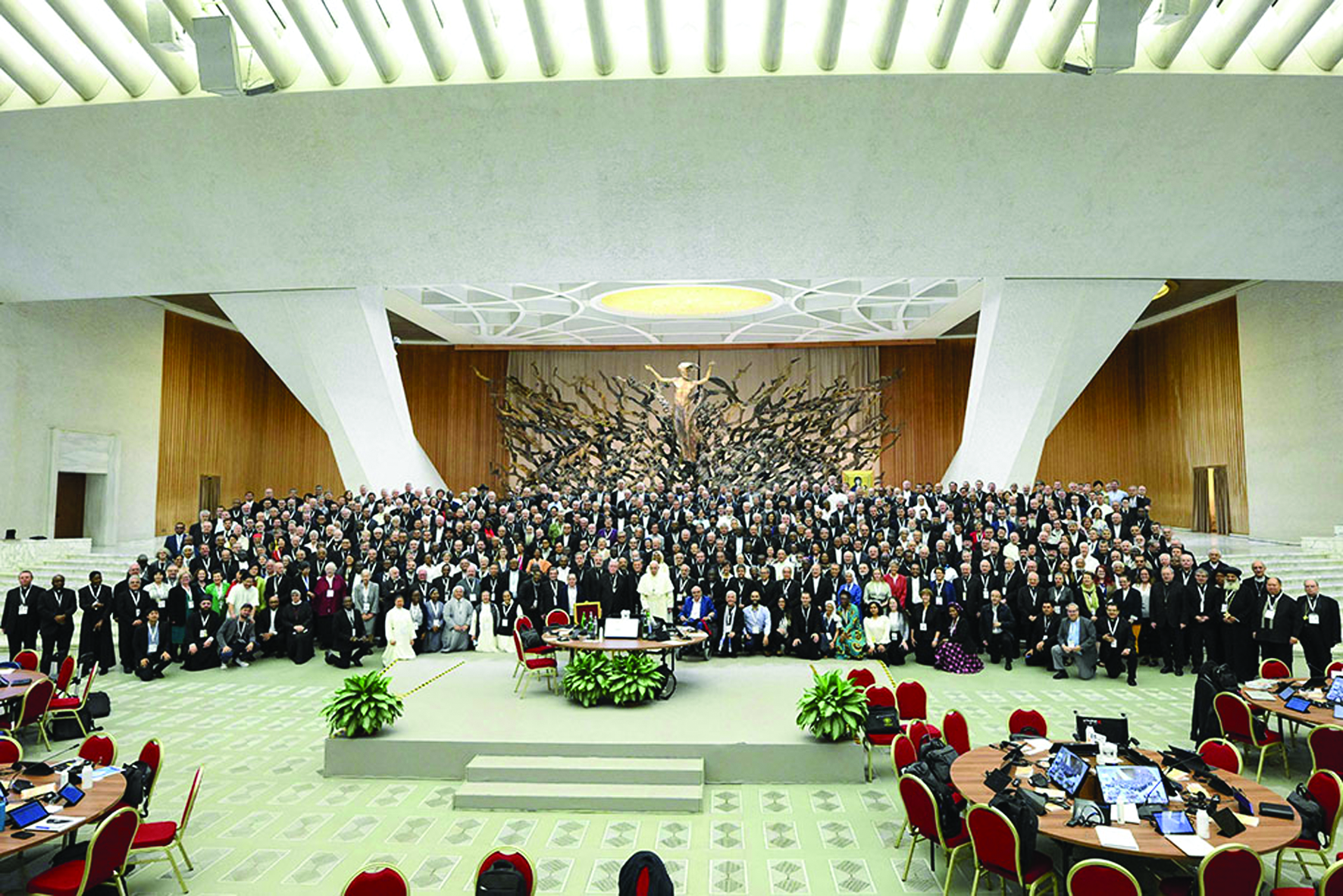
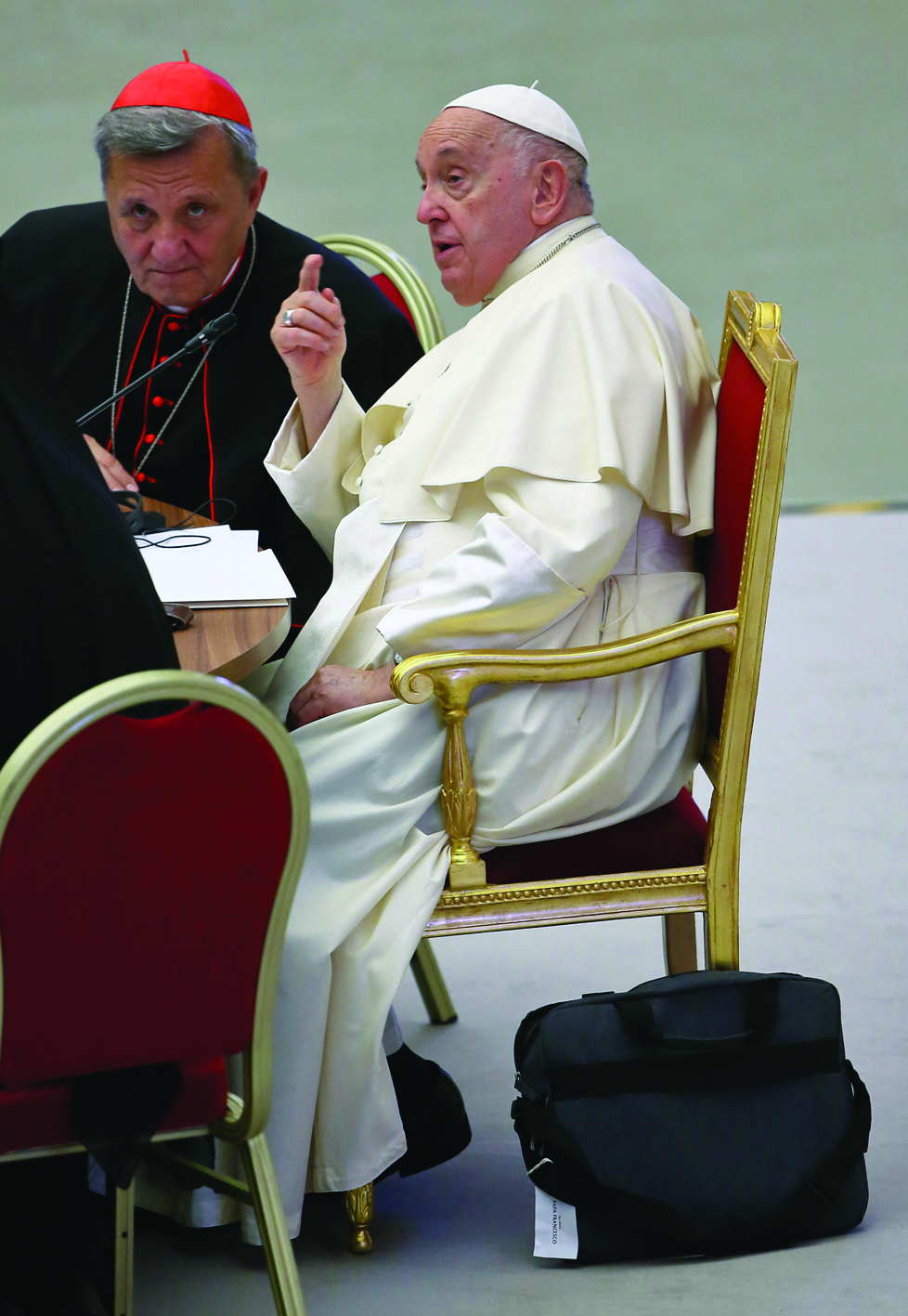
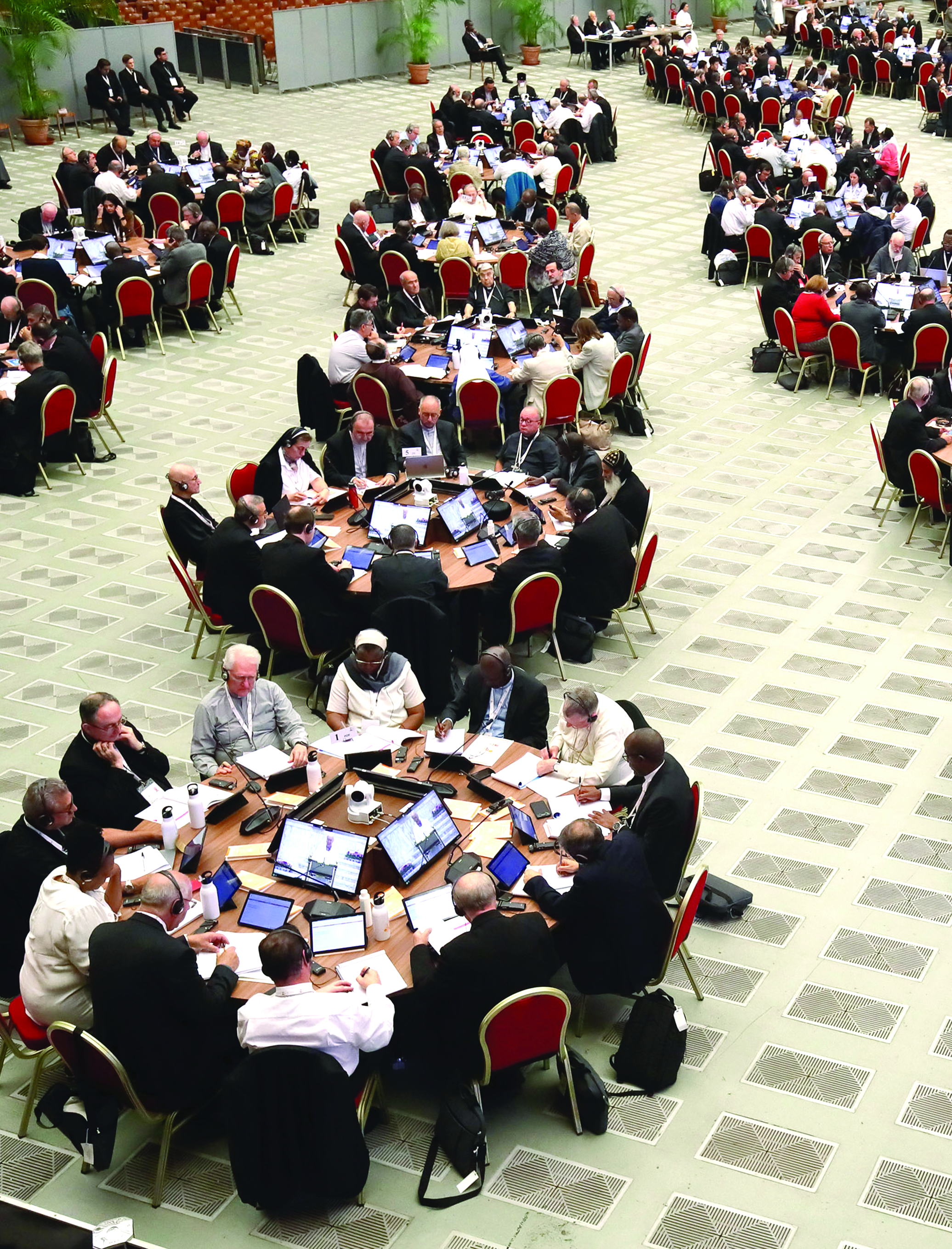
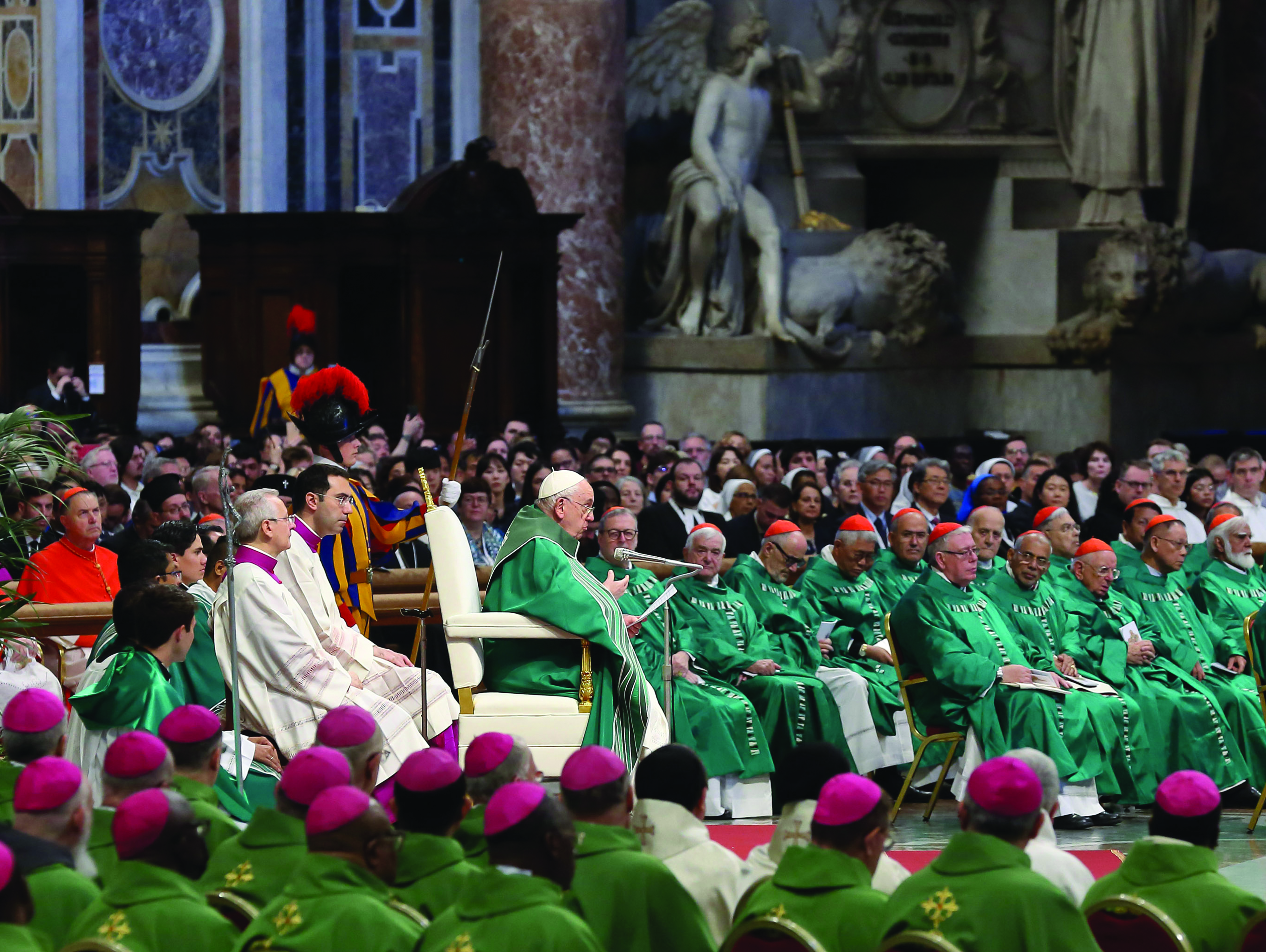
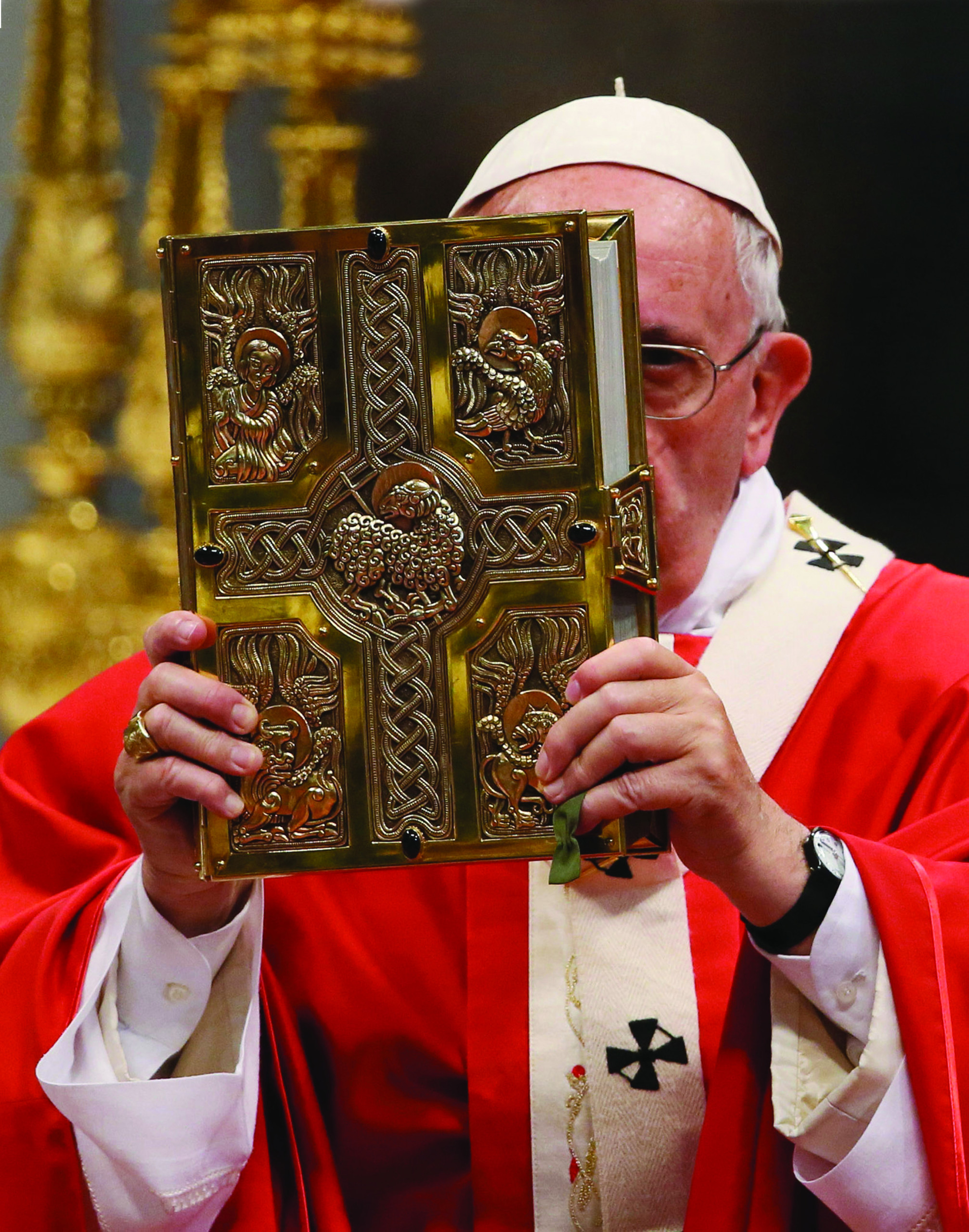
Facebook Comments